Advertisement
MIT's Ernie Moniz Is On Biden's Short List For Energy Secretary — Thrilling Energy Wonks But Disappointing Progressives
Resume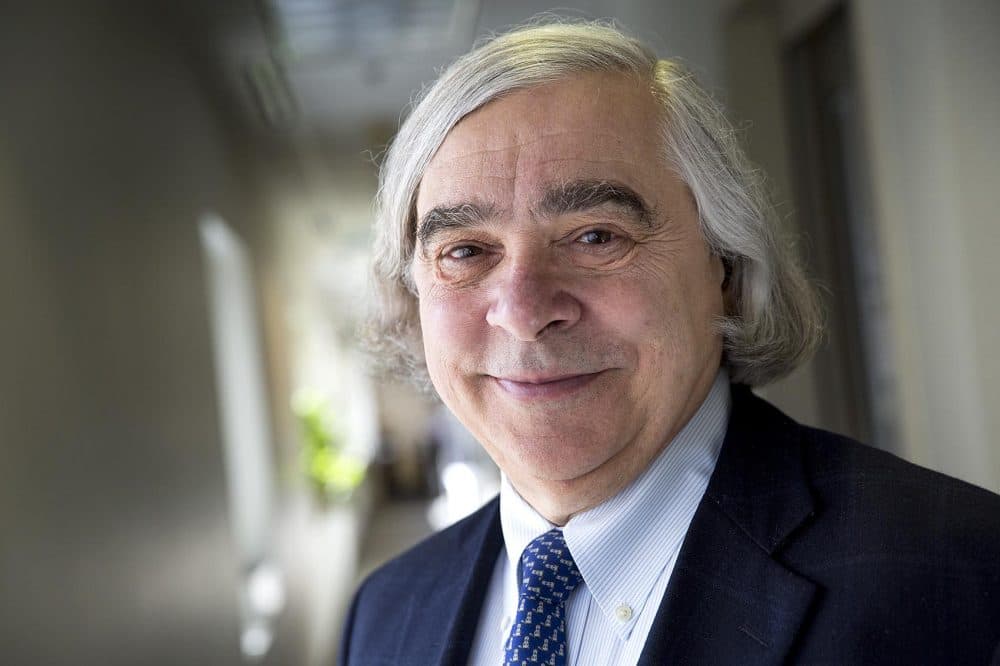
President-elect Joe Biden is announcing his cabinet nominees and choices for other high-level positions this week, and one local figure said to be in the running is MIT professor and nuclear physicist Ernie Moniz. Moniz served as energy secretary during the Obama administration, and is reportedly being considered for the job again. But Moniz — who is respected by many in the energy world and academia — is not without his critics.
WBUR environmental reporter Miriam Wasser spoke to All Things Considered host Lisa Mullins about the situation. Here is their conversation, lightly edited:
Mullins: Remind us who Ernie Moniz is and what we should know about him.
Wasser: Ernie Moniz is a local guy — born and raised in Fall River. He’s a nuclear physicist at MIT, where he helped start and lead the MIT Energy Initiative, a huge energy research hub.
In 2013, he was tapped by the Obama administration to lead the Department of Energy, and probably his biggest legacy to date is the Iran Nuclear Deal. As a scientist who truly understood the details of what was being negotiated, he played an instrumental role in that agreement.
Moniz was also deeply involved in the 2016 Paris Climate Accord and in other big multinational clean energy programs like Mission Innovation and the Clean Energy Ministerial.
Moniz left office with Obama in 2017, and these days, he’s back teaching at MIT and working on various clean energy and nuclear non-proliferation efforts.
There’s some controversy over Moniz’s potential appointment to the DOE. What can you tell us about it?
Criticism of Moniz tends to focus first and foremost on his ties to fossil fuel companies. He previously served on an advisory board for BP, one of the biggest oil and gas companies in the world. And he currently serves on the board of Southern Company, an electric and gas utility that’s come under fire for its role in funding climate denial propaganda in the past.
Moniz himself is definitely not a climate denier, and he’s noted that Southern Company is working to reduce its greenhouse gas emissions.
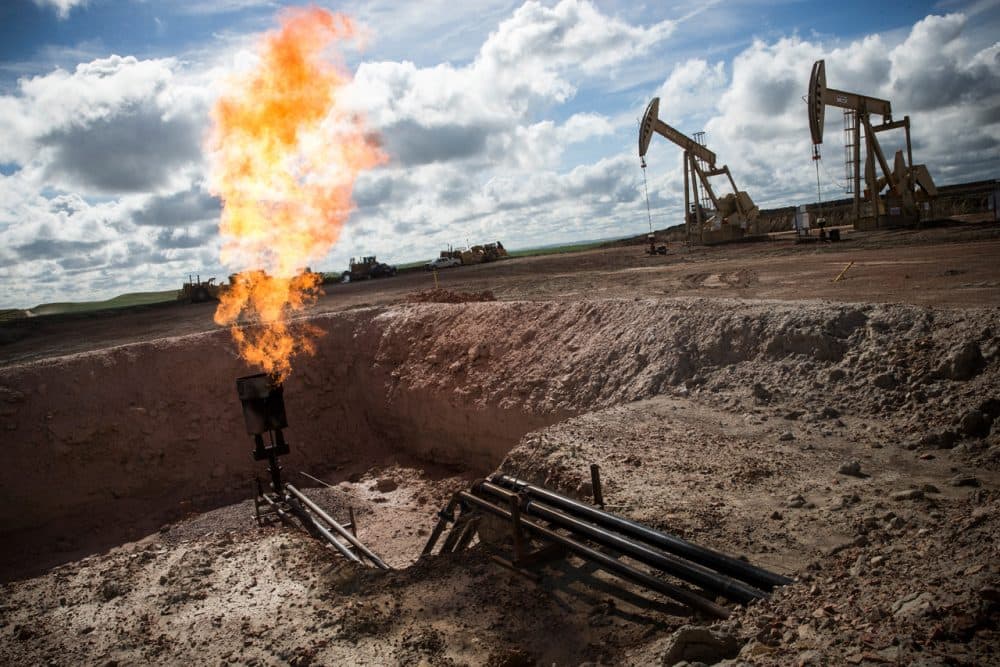
So people are worried that Moniz would be in the pocket of fossil fuel companies?
Some are, for sure. But I think, for a lot of people, the concern is actually more nuanced than that. Moniz has championed something commonly referred to as an "all of the above" energy strategy. The idea is that given our climate emergency, we need to do whatever it takes to reduce carbon emissions as quickly as possible, using whatever combination of fuels and technologies makes the most sense.
Moniz actually spoke about this a couple months ago, so I’ll let him explain it in his own words:
"I’m completely neutral on technologies. I’m not neutral on putting CO2 into the atmosphere. Carbon [capture and] sequestration is just as good as putting in place a zero carbon technology — renewables, nuclear, you name it."
Carbon capture and sequestration being the process of capturing carbon dioxide before it gets into the atmosphere.
So he's saying the carbon math — essentially getting to net zero emissions — is what’s most important?
Exactly. But to his critics, the type of energy we use now — and the type of energies we invest in now for the future — are equally as important.
As Sean Donaghy of the Boston chapter of the Sunrise Movement told me, even if we figure out a carbon capture technology that gets us to the point where no coal or gas fired power plants emit CO2, using fossil fuels like coal or natural gas will still be problematic because of how they're extracted.
What’s more, he's really worried that an “all of the above" energy strategy will actually incentivize new fossil fuel infrastructure.
"Where we put our money today is going to determine what's in place in 2050. If we spend a dollar investing in new fracking technology, that's a dollar not spent on new solar technology or [battery] storage technology," Donaghy said.
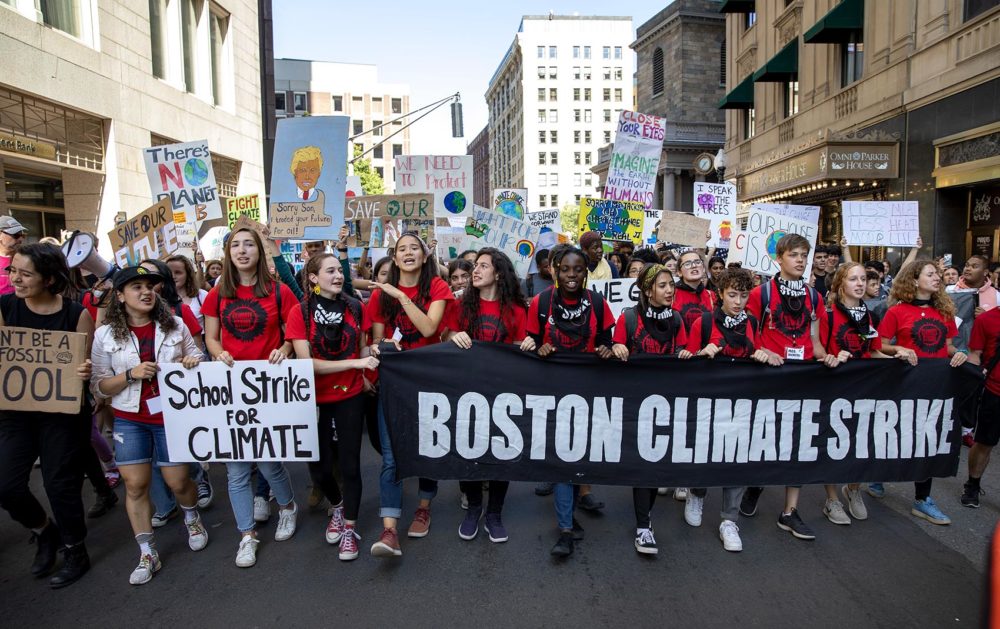
Is there concern that picking someone like Moniz will alienate the progressive wing of the climate movement?
Absolutely. I talked about this with Shalanda Baker, a professor at Northeastern and a co-founder of the Initiative for Energy Justice. She wants to see a complete overhaul of how we create and distribute energy, and a bigger focus on environmental justice.
"We need someone who is out there on the front lines, who's a big picture thinker, who has lots of relationships with key stakeholders, who can manage the complexity of the Department of Energy, but who doesn't necessarily come from the same pool of characters," she says, adding that Moniz falls into this category.
"We need a generational shift."
I should mention I reached out to the Biden transition team, but never heard back. And a Moniz spokesperson told me he isn't doing interviews.
OK, but I assume you spoke with people who support Moniz and think he’d be a good energy secretary — what did they tell you?
I spoke to a number of people who felt this way, and who made various arguments for Moniz.
John Holdren, President Obama’s senior science advisor, told me that “Ernie Moniz was the best Secretary of Energy this country has ever had” and that criticisms about his ties to the fossil fuel industry are “misguided” because Moniz is also equally as knowledgeable about and connected to the clean energy sector.
Robert Armstrong, who serves as director of the MIT Energy Institute and has worked with Moniz for decades, says Biden would be smart to pick Moniz given his experience at the DOE, the relationships he has with climate leaders internationally, and his deep understanding of nuclear power and non-proliferation.
Armstrong was also critical of progressive climate activists who have demanded the Biden administration not appoint anyone with fossil fuel ties: "I think the litmus test ought to be commitment to addressing climate change," he says.
"I think people should be delighted to have somebody like Ernie as secretary. [He] understands the science, the need and the opportunity. And he provides a fact-based and data-driven approach to going after climate change as a challenge, and what can help get us there the fastest."
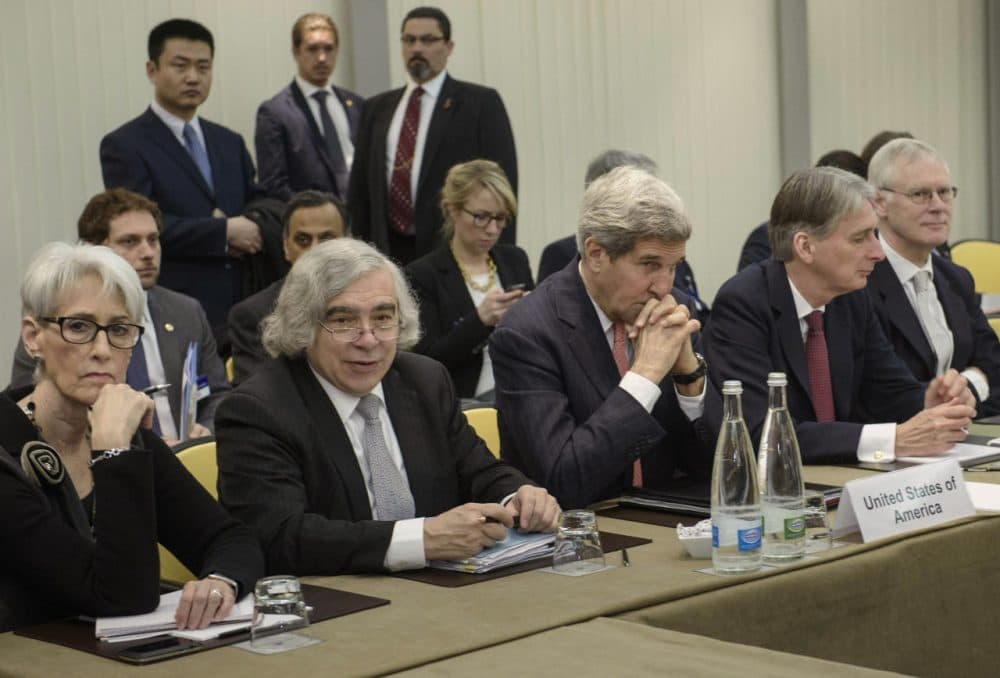
On Monday, Biden announced he was appointing John Kerry as special presidential envoy for climate at the National Security Council. Does this tell us anything about the likelihood we’ll see someone like Moniz appointed to DOE?
I think it does. A lot of observers are saying Kerry’s appointment signifies that Biden plans to take a more moderate approach to climate change, as opposed to deeply and radically restructuring our energy systems like some progressive activists would like.
I think the important thing to keep in mind when we’re thinking about Moniz is the debate over him is really a debate about something much larger. Most people acknowledge that we need to transition away from fossil fuels and deeply decarbonize our energy systems, and while that transition is certainly underway, the decisions we make in the next few years are going to be really, really critical in determining how this all plays out.
I talked to Jesse Jenkins, a professor at Princeton who studies energy systems and decarbonization. And I think he put it really well. He framed the "controversy" over Moniz as really being all about competing theories of change.
"There's a world view that I think is embodied by Sunrise and others in the environmental community that the reason we're in this mess is because fossil energy companies. They funded misinformation and funded political campaigns for opponents of climate action — and a lot of that is objectively true," Jenkins says.
"Their theory of change is that we need to destroy those companies to defeat their political power. And if that's the case, then you don't want anybody who has been associated with those in energy sector who might be seen as a defender or sympathetic to them. It's a sort of a total victory approach to getting this done."
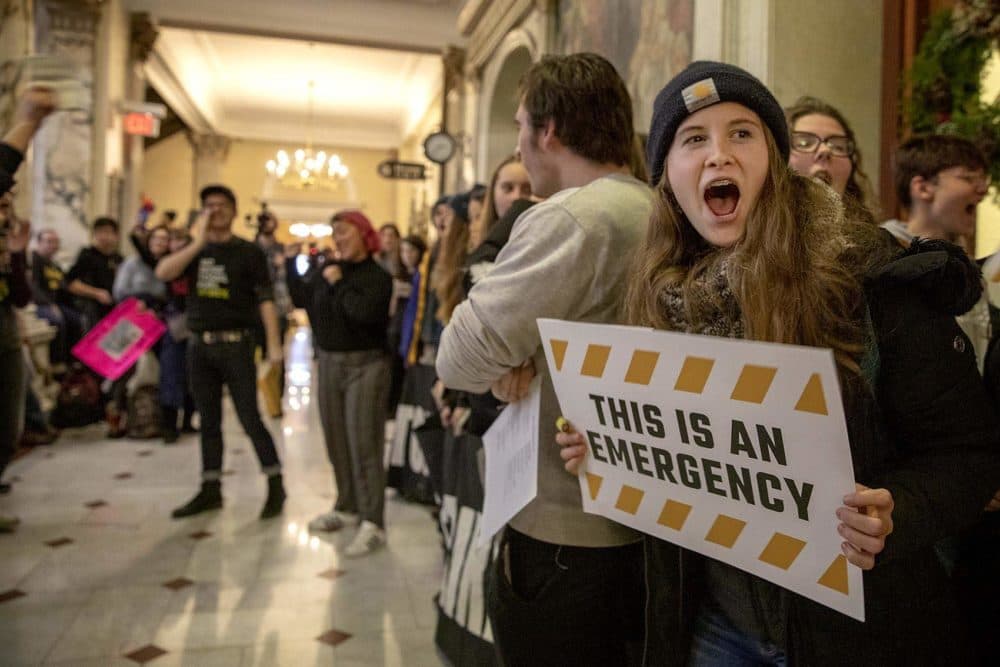
But on the other side, there's a group of people who believe we need "to push them and force them to see that they can't keep doing what they're doing and that there's an opportunity for them to take part in this transition," Jenkins says. "Some of them will have to go out of business and be bankrupt because they're not willing to come into the future, but this transition is too big and too challenging, and we don't have the time or the political power to think that we're going to just have total, overwhelming victory."
In other words, Jenkins says, everyone has the same end goal of getting to zero emissions to mitigate the worst effects of climate change. But they have different views about how to get there, who should be at the table, and what they’re willing to compromise.
"And I don't think we know which of those will work," he adds. "But there are good, committed people who care deeply about solving climate change that believe both of those things."
